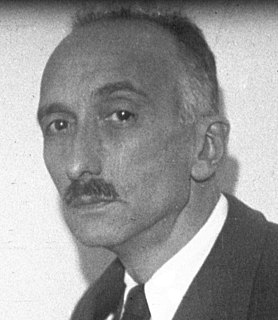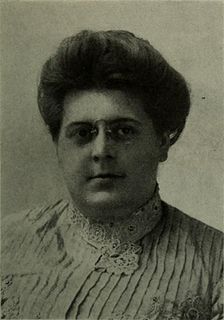A Quote by Ralph Waldo Emerson
The glory of the farmer is that, in the division of labors, it is his part to create. All trade rests at last on his primitive activity. He stands close to Nature; he obtains from the earth the bread and the meat. The food which was not, he causes to be.
Related Quotes
Of all the everyday plants of the earth, grass is the least pretentious and the most important to mankind. It clothes the earth is an unmistakable way. Directly or indirectly it provides the bulk of man's food, his meat, his bread, every scrap of his cereal diet. Without grass we would all starve, we and all our animals. And what a dismal place this world would be!
Many people think that when we practice agriculture, nature is helping us in our efforts to grow food. This is an exclusively human-centered viewpoint... we should instead, realize that we are receiving that which nature decides to give us. A farmer does not grow something in the sense that he or she creates it. That human is only a small part of the whole process by which nature expresses its being. The farmer has very little influence over that process... other than being there and doing his or her small part.
Therefore bread was created for the glory of Christ. Hunger and thirst were created for the glory of Christ. And fasting was created for the glory of Christ. Which means that bread magnifies Christ in two ways: by being eaten with gratitude for his goodness, and by being forfeited out of hunger for God himself. When we eat, we taste the emblem of our heavenly food—the Bread of Life. And when we fast we say, “I love the Reality above the emblem.” In the heart of the saint both eating and fasting are worship. Both magnify Christ.
He is not the soul of Nature, nor any part of Nature. He inhabits eternity: He dwells in a high and holy place: heaven is His throne, not his vehicle, earth is his footstool, not his vesture. One day he will dismantle both and make a new heaven and earth. He is not to be identified even with the 'divine spark' in man. He is 'God and not man.
The lover of nature is he whose inward and outward senses are still truly adjusted to each other; who has retained the spirit of infancy even into the era of manhood. His intercourse with heaven and earth, becomes part of his daily food. In the presence of nature, a wild delight runs through the man, in spite of real sorrows.
The man who partakes in the breaking of the bread dares to build his house on the very core of love. He becomes, as it were, Godlike, but regardless of the strength he derives from it, his free will remains. We are always free to disown this immense grace, to abuse it. The Greatest Love may be betrayed. Fed on the Living Bread, we nevertheless conceal a part of ourselves which longs for swine's food.
One farmer says to me, "You cannot live on vegetable food solely, for it furnishes nothing to make the bones with;" and so he religiously devotes a part of his day to supplying himself with the raw material of bones; walking all the while he talks behind his oxen, which, with vegetable-made bones, jerk him and his lumbering plow along in spite of every obstacle.
Many families participate in the Community Supported Agriculture movement, which allows a family to buy shares in a farmer's produce so that they know where their food is coming from, and they can take their families out and see the farm and meet the farmer. That movement has helped create a new culture around food.
Plato defined a slave as one who accepts from another the purposes which control his conduct. This condition obtains even where there is no slavery in the legal sense. It is found wherever men are engaged in activity which is socially serviceable, but whose service they do not understand and have no personal interest in.






































